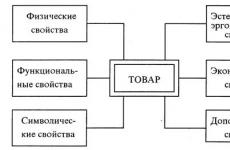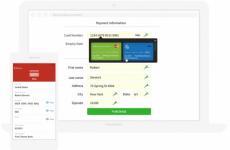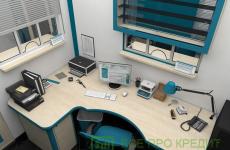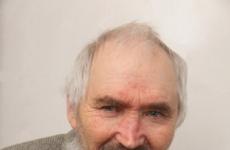Pressure pills are strong. Drugs to increase pressure: how to get rid of the state of "sleepy fly"
Nowadays, most people have problems with blood pressure (BP). However, not everyone suffers from its increase. Quite a lot of people are also prone to hypotension - a condition characterized by a decrease in blood pressure by more than 20% of the norm (90/60 mm Hg and below). At the same time, they experience dizziness, loss of strength, pale skin, increased fatigue, palpitations and shortness of breath during physical work.
Such a condition can have a variety of causes, as well as be primary (pathological or physiological) or secondary (symptom of a disease). Therefore, you can not independently choose drugs that increase blood pressure. It is necessary to consult a doctor who will prescribe the necessary diagnostic procedures and tests, based on the results of which he will select the optimal remedy.
To normalize low blood pressure, drugs of different pharmaceutical groups can be used.: herbal adaptogens, CNS stimulants, alpha-agonists, anticholinergics.
Herbal adaptogens
This group of drugs is often used to improve the condition of hypotension. Plant adaptogens have a tonic effect, gently stimulate the central nervous system, improve metabolic processes in the body, eliminate fatigue, loss of strength and increase blood pressure. The most commonly used tinctures of Eleutherococcus, ginseng, magnolia vine, zamaniha, aralia.
All of them are drunk in doses indicated by the doctor or in the instructions. The course of treatment is at least a month.
Means for stimulation of the central nervous system
This group is subdivided into several smaller ones. All CNS stimulant drugs increase mental and physical performance, eliminate drowsiness and fatigue, increase arterial pressure increase attention.

Caffeine-sodium benzoate is probably the most famous drug for hypotension. It belongs to psychoactive drugs. This drug stimulates the work of the vasomotor and respiratory centers of the brain, increases mental activity, improves conductivity in the spinal cord, eliminates fatigue and drowsiness. Due to the effect on the vasomotor center, it affects the blood vessels, which contributes to an increase in blood pressure.

Cordiamin belongs to analeptics. It simultaneously stimulates the central nervous system and chemoreceptors. At the same time, its main effect is on the brain, namely on the vasomotor and respiratory centers in the medulla oblongata. Due to the stimulation of the vasomotor center, there is an increase in peripheral vascular resistance and, as a result, an increase in blood pressure. Stimulation of chemoreceptors provides an increase in respiratory movements.
Cordiamin can be used for emergency pressure rise, since its effect is manifested 1-3 minutes after injection and 10 minutes after ingestion.
Etimizol
Etimizol is an analeptic that stimulates the respiratory center and causes a vasoconstrictor effect. As a result of such influences, breathing deepens and becomes more frequent, the volume of pulmonary ventilation and circulating blood increases, and blood pressure rises.
Securinin
This drug belongs to analeptics that stimulate the central nervous system and increase the excitability of the spinal cord. A persistent increase in pressure when it is taken occurs after 10-15 days of daily intake. It also shows an improvement general condition organism and labor productivity, drowsiness and loss of strength are eliminated.
Alpha-agonists

This drug increases the tone and peripheral resistance of blood vessels, without changing the work of the heart and central nervous system. When taken, there is a constant preservation of the volume of circulating blood, an increase and retention of blood pressure indicators. The action of the drug develops quite quickly. For 1 hour, he is able to increase the pressure by 15-30 mm. rt. Art.

Due to the stimulation of postsynaptic alpha-adrenergic receptors, Mezaton constricts arterioles, increases the total peripheral vascular resistance, which leads to an increase in blood pressure. At the same time, there is a slight stimulation of the brain and spinal cord, and an anticongestive effect is exerted.
Drugs of other groups
Heptamil
This drug can be used to stop a sharp drop in blood pressure, as well as in shock, heart failure, hypotension, fainting, etc. Heptamil increases the tone of the cardiovascular system without excessively narrowing the vessels at the same time. The effect of the drug is expressed by an increase in heart rate, an increase in cardiac output and an improvement in coronary circulation.
Rantarine
This is an adaptogenic drug that is made from reindeer antlers. It has a tonic effect on the central nervous system and the cardiovascular system, thereby increasing blood pressure. Also, the drug has a general strengthening effect, normalizes metabolism, increases muscle tone, etc.
A similar drug, Pantokrin, has the same properties.
fludrocortisone
This medicine belongs to corticosteroids. It is prescribed for patients suffering from orthostatic hypotension. This condition is characterized by a drop in pressure in the vessels of the brain during a sharp rise from a chair or bed.
Means for increasing pressure differ in the mechanism of action, the speed of manifestation of action and other characteristics. All these features, as well as the characteristics of the body and the course of the disease, are taken into account by the doctor when prescribing therapy.
It is important to understand that hypotension contributes to the deterioration of the blood supply to the heart and oxygen starvation of the brain. Therefore, low blood pressure should be taken seriously and treatment of such a condition should be started on time.
Modern people due to constant stress, lack of sleep, fast pace of life, may suffer from low blood pressure. With this condition, tinnitus, headaches, dizziness are often observed. To avoid negative symptoms, you should consult a doctor who will choose the right pills to increase pressure.
Hypotension (arterial hypotension) is a state of the body, which is characterized by a decrease in blood pressure below normal levels. The frequency of readings of systolic and diastolic pressure is normally 120/80 mm Hg. With hypotension, the upper indicator drops below 90 mm, and the diastolic indicator drops below 65. The pulse rate (HR) can be 140 beats.
Pills for low blood pressure cannot be chosen independently, you must contact a specialist who will prescribe tests and diagnostic procedures. Based on these results, the doctor will be able to choose the optimal remedy. As a rule, drugs at reduced pressure are divided into several groups:
- Alpha-agonists. Artificial preparations are used for hypotensive crises, orthostatic disorders. Effective pills from low pressure: Midodrine (Gutron, Medamin), Mephentermine, Norepinephrine (Norepinephrine), Phenylephrine. The main advantages of such drugs are a rapid increase in blood pressure and the elimination of stagnation of blood in the veins. Contraindications to the use of adrenomimetics are: heart failure, thyrotoxicosis, pheochromocytoma.
- plant adaptogens. Means of this group are often used to improve the condition of hypotension. The drugs gently stimulate the central nervous system, have a tonic effect, eliminate fatigue and increase blood pressure. As a rule, these include: tinctures of ginseng, eleutherococcus, zamaniha, magnolia vine, aralia, Pantocrine, Saparal.
- Anticholinergic drugs - medicines blocking acetylcholine and receptors: Bellaspon, Bellataminal.
- Adrenomimetics and analeptics. The drugs of this group are able to increase blood pressure, increase mental and physical performance, reaction rate, reduce fatigue and drowsiness. They can be taken along with antispasmodics. The most famous means are: Caffeine-sodium benzoate, Niketamide (cordiamin), Effortil (ethylephrine), Etimizol, Securinin. Alkaloid. The disadvantage of using such drugs is their short-term effect.
Tablets for the normalization of pressure
Normal blood pressure contributes to the good functioning of the heart and the body as a whole, any changes may indicate the presence of pathologies. People with arterial hypotension must constantly use medications to normalize their condition. Only a doctor can choose the right means after the patient has passed all the necessary tests. Effective tablets for normalizing pressure:
- Midodrine or Gutron. Removes asthenic conditions, improves health in patients even with severe forms of hypotension.
- Ekdisten. The composition of the drug contains an extract from leuzea safflower.
- Citramon. Pain reliever.
- Rantarine. Tablets from reduced pressure with deer antler extract.
Reduced blood pressure caffeine tablets
A proven remedy for low blood pressure is Caffeine. This effective and affordable drug for hypotension acts like regular coffee. Caffeine-sodium benzoate is a psychostimulant drug that stimulates the work of the vasomotor center of the brain. The medicine eliminates increased fatigue, relieves drowsiness. Due to the effect on the GM center, the drug has a positive effect on blood vessels, which helps to increase blood pressure.
Caffeine-sodium benzoate stimulates the stomach, has a diuretic effect, lowers platelet aggregation. The drug should be used with caution in children under 12 years of age, the elderly, pregnant and lactating women. Caffeine blood pressure pills have the following contraindications:
- anxiety disorders;
- tachycardia;
- organic cardiovascular diseases;
- ventricular extrasystole;
- hypersensitivity to the composition of the agent.

Strong blood pressure pills
Many patients with hypotension are often interested in the question: how to increase blood pressure with pills? Self-use of drugs can lead to complications of the disease, so all drugs should be prescribed only by a doctor. For removal from a state of shock, ampoules with Heptamil, Hypertensin can be used. The most powerful blood pressure pills:
- Fludrocortisone. It is prescribed for attacks of orthostatic hypotension. The dose is 100 mcg 3 times a week once a day. Side effects: arrhythmia, peripheral edema, thrombosis.
- Bellataminal. Used in disorders of the vagus nerve function 3 times a day, one tablet. The drug is contraindicated in angina pectoris, pregnancy, atherosclerosis, angle-closure glaucoma.
how to increase blood pressure quickly
Weakness, dizziness, eye fatigue, insomnia and headache are a list of ailments that can be caused by low blood pressure. Another consequence of low pressure is a poor supply of oxygen to the internal organs, because of this, the patient may feel general fatigue and nausea. How to increase pressure quickly? There are several ways that can raise blood pressure at home:
- put a pinch of salt on the tongue;
- drink a cup of strong sweet coffee, tea with cognac or cinnamon infusion;
- do acupressure;
- take a contrast shower;
- do some yoga exercises;
- make an alcohol tincture of herbs (ginseng, magnolia vine, eleutherococcus, ginseng);
- drink aspirin;
- take a run in the fresh air;
- eat an apple, pomegranate, liver, buckwheat and foods that can stimulate the appetite.

How to increase diastolic pressure
The blood pressure that occurs in the arteries when the heart muscle is relaxed is called diastolic. A low rate of such pressure indicates hypotension. As a rule, this ailment can be primary (has a congenital character) or secondary (occurs in adulthood, is a symptom of a serious illness). How to increase diastolic pressure? With a large difference between the lower and upper blood pressure, it is urgent to seek help from the hospital. If the cause is not a disease, then at home you can:
- do gymnastics;
- walk in the morning;
- book a massage of any kind;
- increase the intake of foods with vitamins A, C, E and P;
- do not abuse caffeine;
- take decoctions of herbs.
Medications for high blood pressure in the elderly
Hypotension in pensioners can provoke the development of orthostatic hypotension and ischemic stroke. A high rate of patients with low blood pressure is observed in elderly men. With a pathological decrease in pressure, the symptoms of the disease can haunt a person all day, numbness of the extremities or nausea may appear. To save the patient from unpleasant manifestations, the doctor must prescribe tests and conduct a study for the presence of other diseases. After diagnosis, the specialist may prescribe medications to increase blood pressure in the elderly:
- Piracetam;
- Ekdisten;
- Saparal;
- Glycine A;
- tincture of valerian.

Pregnant blood pressure pills
After conception in female body progesterone is actively produced, contributing to a decrease in blood pressure below normal. Often the symptoms of arterial hypotension disturb future mother in the first trimester. In addition, a sharp decrease in blood pressure can be provoked by a long stay in a stuffy room or taking hot bath. In this case, all procedures and pills to increase the pressure of pregnant women should be recommended by a doctor. Drugs that do not negative impact per child:
- Caffeine;
- Dipyridamole;
- Eleutherococcus extract;
- tincture of Rhodiola rosea;
- tincture of lure.
How to choose pills to increase blood pressure
Many hypotensive patients are often interested in the question of how to choose pills to increase pressure? With low blood pressure, it is not necessary to self-medicate, as this can provoke complications. Only the attending physician can select drugs, taking into account the clinical picture of the disease, pressure indicators, weight and age of the patient. As a rule, remedies for low blood pressure contain caffeine or substances with a tonic and stimulating effect. All drugs are taken by prescription and a course of several days.
The price of tablets to increase blood pressure
Today, over-the-counter drugs for low blood pressure can be purchased at any pharmacy. The cost in this case will depend on the manufacturer, the form of release and the group of the drug. On average, the price of such drugs varies from 60 to 1500 rubles. In addition, you can find funds in online catalogs, order and buy inexpensively in the online store. Approximate prices for blood pressure tablets:
|
Name of the drug |
Price in rubles |
|
Effortil |
|
|
Ephedrine hydrochloride |
|
|
Cordiamin |
|
|
Cofitsil Plus (Analogue of Citramon) |
|
|
Actovegin |
|
|
midodrine |
|
|
Caffeine-sodium benzoate |
|
|
Citramon |
|
|
Angiothesinamide |
|
Drugs used to correct sudden drops in blood pressure See also epinephrine.
Angiotensinamide (Angiotensinamide)
l-L-Asparagyl-5-b-valilangiotensin
Synonyms: Hypertensin.
Pharmachologic effect. It has a pressor (increasing blood pressure) effect due to an increase in peripheral vascular resistance, especially small-caliber arterioles, is able to reduce the smooth muscles of the uterus, intestines, urinary and gallbladder, enhances the secretion of aldosterone and increases the release of catecholamines.
Indications for use. Shock condition, especially in isovolumic shock (without massive blood loss) associated with vasomotor collapse (a sharp drop in blood pressure due to vasodilation) - post-traumatic and postoperative shock, shock with intoxication, coma and infectious diseases, as well as with myocardial infarction, cardiac tamponade ( compression of the heart by blood or fluid accumulated in the pericardial sac), massive pulmonary embolism (blockage of the pulmonary artery), etc.
Method of application and dose. Enter intravenously drip at an initial rate of 5-20 mcg / min. In severe cases, the initial rate may be 50-60 mcg/min. Upon reaching the systolic ("upper") blood pressure of 90-110 mm Hg. Art. the infusion rate is reduced to 1-3 mcg / min, depending on the patient's condition. The drug can be administered for a long time (for many hours or several days).
Side effect. Bradycardia (rare pulse), which is stopped (removed) by atropine.
Contraindications. Hypovolemic shock (shock occurring against the background of a sharp drop in circulating blood volume). Caution should be observed in patients with cardiac arrhythmias.
Release form. Angiotensinamide lyophilized form (dosage form dehydrated by freezing in a vacuum) 0.001 g (1 mg) for injection.
Storage conditions.
GEPTAMIL (Geptamil)
Pharmachologic effect. It is a highly effective and non-toxic agent that improves the tone of the cardiovascular system. It has a pronounced cardiotonic (increasing the strength of heart contractions) action, increases cardiac output, coronary (cardiac) blood flow, tones the peripheral circulatory system, returns deposits
blood into the arterial system without causing significant vasoconstriction.
Indications for use. Shock, collapse (a sharp drop in blood pressure), myocardial infarction, heart failure of any degree (acute and congestive), hypotension (low blood pressure), asthenia (weakness), syncope, cor pulmonale, cardiovascular failure "in the elderly, "neuroleptic syndrome" caused by taking antipsychotics (a condition caused by inhibition of the functions of the central nervous system under the influence of neuroleptics).
Method of application and dose. In shock, collapse, and in other cases of a sharp drop in blood pressure, 2 ampoules of heptamil are prescribed intravenously. If necessary, intravenous infusion is repeated by the jet and drip method. Intramuscularly injected 1-2 ampoules, and if necessary, increase to 5 ampoules. In cases of resuscitation of newborns, the drug is administered in an amount of 2 ml directly into the umbilical cord.
Inside, with hypotension and asthenia, adults are prescribed 2 tablets (or 30 drops) 3 times a day; children - from 10 to 40 drops per day, depending on age.
Contraindications. Hypovolemic shock (shock occurring against the background of a sharp drop in circulating blood volume). Caution should be observed in patients with cardiac arrhythmias.
Release form. Ampoules of 313 mg in 5 ml of solution; 50 mg tablets; vials with 40 ml of solution (drops).
Storage conditions. List B. In a dry, dark place.
DOPAMINE (Dophaminum)
Synonyms: Dopamine, Dopmin, Aprikal, Cardiosteril, Dopamex, Dofan, Dinatra, Hydroxytyramine, Intropin, Revivan.
Pharmachologic effect. It has a specific effect on dopaminergic receptors. Under the influence of dopamine, there is an increase in the tone of peripheral vessels, an increase in blood pressure. However, this reduces the resistance of the renal vessels and increases the renal blood flow, which leads to an increase in renal filtration.
Indications for use. Shock conditions caused by various reasons: cardiogenic, traumatic, endotoxic, postoperative, hypovolemic shock, etc. Due to a lesser effect on peripheral vascular resistance, an increase in renal blood flow and blood flow in other internal
organs and other features dopamine is considered in these cases more indicated than norepinephrine and other catecholamines.
Dopamine is also used to improve hemodynamics in acute heart and vascular insufficiency that develops under various pathological conditions.
Method of application and dose. Enter intravenously drip; 25 or 200 mg of the drug is diluted, respectively, in 125 or 400 ml of 5% glucose solution or isotonic sodium chloride solution (the content of dopamine in 1 ml is 200 or 500 μg, respectively).
The initial rate of administration is 1-5 mcg/kg per minute (2-11 drops of a 0.05% solution). If necessary, the rate of administration is increased to 10-25 mcg/kg per minute (average 18 mcg/kg per minute).
Infusion is performed continuously for 2-3 hours to 1-4 days. The daily dose reaches 400-800 mg.
The effect of the drug comes on quickly and stops 5-10 minutes after the end of administration.
The optimal dose must be selected in each individual case under constant monitoring of hemodynamics and electrocardiogram.
Side effect. Large doses cause spasm (sharp narrowing of the lumen) of peripheral vessels, tachycardia (increased heart rate), ventricular extrasystole, the appearance of nodal rhythm (heart rhythm disturbances), angina pectoris, respiratory failure, headache, psychomotor agitation and other signs of adrenomimetic action.
Contraindications. Pheochromocytoma (tumor of the adrenal glands). It should not be prescribed for arrhythmia in combination with monoamine oxidase inhibitors, with cyclopropane and halogenated anesthetics (halothane, trichlorethylene).
Release form. 0.5% or 4% solution in 5 ml ampoules (25 or 200 mg of dopamine).
Storage conditions. List B: In a dark place.
Cordiaminum (Cordiaminum)
Synonyms: Niketamide.
Pharmachologic effect. Stimulator of the central nervous system, excites the respiratory and vasomotor centers.
Indications for use. Acute and chronic circulatory disorders, collapse (a sharp drop in blood pressure) and asphyxia (breathing disorders) in shock conditions, asphyxia (lack of breathing) in newborns, poisoning with sleeping pills, narcotic analgesics.
Method of application and dose. Intravenously (slowly) 0.5-2.0 ml 2-3 times a day. Children subcutaneously 0.1-0.75 ml, depending on age. In case of poisoning with sleeping pills, drugs, agalgesics (painkillers) intravenously (slowly) up to 3-5 ml.
Higher doses: parenterally (bypassing the digestive tract) single - 2 ml, daily - 6 ml.
Side effects and contraindications
Release form. In vials of 15 ml; ampoules of 1 ml and 2 ml, in a package of 10 pieces.
Storage conditions. List B. In a dark place.
MEZATON (Mesatonum)
Synonyms: Phenylephrine hydrochloride, Adrianol, Almefrin, Derisen, Idrianol, Isofrin, Neofrin, Neo-Synephrine, M-Simpatol, Vizadron, etc.
Pharmachologic effect. adrenomimetic agent. Stimulates alpha-adrenergic receptors, has little effect on beta-receptors of the heart.
Indications for use. Hypotension (low blood pressure).
Method of application and dose. In case of collapse (a sharp drop in blood pressure), 0.3-1 ml of a 1% solution in 40 ml of a 40% glucose solution is slowly injected intravenously under the control of blood pressure. If long-term administration is necessary, 1.0 ml of a 1% solution is injected intravenously in 250-500 ml of a 5% glucose solution.
Side effect. Headache, nausea (with increased blood pressure).
Contraindications. Severe atherosclerosis. Special care is needed for hyperthyroidism (thyroid disease), a tendency to angiospasm (a sharp narrowing of the lumen of the vessels), as well as in the elderly.
Release form. Powder, ampoules of 1 ml of 1% solution, in a package of 10 pieces.
Storage conditions. List B. In a dark place; powder in well-closed orange glass jars.
NORADRENALINA HYDROTARTRATE (Noradrenalinihydrotartras)
Synonyms: Levarterenol bitartrate, Arterenol, Levofed, Norartrinal, Norepinephrine, Norexadrin, etc.
Pharmachologic effect. Stimulates predominantly alpha-adrenergic receptors. Compared with adrenaline, it has a stronger vasopressor (constricting blood vessels) effect, stimulates heart contractions to a lesser extent; has a weak bronchodilator (expanding the lumen of the bronchi) effect.
Indications for use. Acute drop in blood pressure due to injuries, surgical interventions, poisoning, moderate cardiogenic shock, sometimes with internal bleeding, etc.
Method of application and dose. Intravenously (drip) 2-4 mg of the drug (1-2 ml of a 0.2% solution) in 500 ml of a 5% glucose solution (under the control of blood pressure).
Side effect. With the rapid introduction of nausea, headache, chills, palpitations; when it gets under the skin, necrosis (tissue necrosis), therefore, constant monitoring of the position of the needle in the vein is necessary. If norepinephrine gets under the skin, 5-10 mg of phentolamine is injected in 10 ml of saline.
Contraindications. With chloroform, halothane, cyclopropane anesthesia. Care must be taken in severe atherosclerosis, circulatory failure, complete atrioventricular blockade (impaired conduction of excitation through the heart).
Release form. 1 ml of a 0.2% solution in ampoules in a package of 6 pieces.
Storage conditions. List B. In a dark place.
FETANOL (Phetanolum)
Synonyms: Ethylephrine, Ethyladrianol, Circulan, Effontil, Effortil, Etifillin, Kertazin, Pressoton, etc.
Pharmachologic effect. According to the chemical structure and effect on the body, it is close to mezaton, it increases blood pressure to a lesser extent, but for a longer period.
Indications for use. Hypotension (low blood pressure) of various origins, shock, collapse (a sharp drop in blood pressure).
Method of application and dose. Inside, 5 mg 2-3 times a day if necessary for several weeks. Parenterally: 1 ml of a 1% solution under the skin, intramuscularly or slowly into a vein. It can be injected into a vein by drip in a 5% glucose solution or in an isotonic sodium chloride solution (at the rate of 1 ml of a 1% solution of fetanol per 100 ml of solution; in total, up to 300 ml is injected, i.e. 30 mg of the drug); the rate of administration is 60-80 drops per minute.
Young children are prescribed orally 0.00125-0.0025 g 0 / 4- "/ 2 tablets) 2-3 times a day; 0.1-0.4 ml of a 1% solution is injected under the skin.
Older children are given orally 0.0025-0.005 g 0/2-1 tablet) 2-3 times a day; 0.4-0.7 ml of a 1% solution is injected under the skin.
Side effect. With rapid intravenous administration, headache.
Contraindications. Severe atherosclerosis, hypertension (persistent rise in blood pressure). Special care is needed with a tendency to angiospasms (spasms - a sharp narrowing of the lumen - vessels).
Release form. Powder; tablets of 0.005 g in a package of 20 pieces; in ampoules of 1 ml of a 1% solution in a package of 10 pieces.
Storage conditions. List B. In a dark place.
EPHEDRINE HYDROCHLORIDE (Ephedrinihydrochloridum)
Synonyms: Ephedrine hydrochloric, Ephalon, Efedrozan, Neo-Fedrin, Sanedrin, Efetonin, etc.
Pharmachologic effect. Stimulant of alpha and beta adrenoreceptors. Compared to adrenaline, the effect is weaker, but longer.
Indications for use. Arterial hypotension (low blood pressure), poisoning with sleeping pills and drugs.
Method of application and dose. Into a vein slowly (0.5-1 ml of a 5% solution) and drip (2 ml of a 5% solution in 500 ml of a 5% glucose solution or isotonic sodium chloride solution). Under the skin, into the muscle, 0.02-0.05 g is injected 2-3 times a day.
Side effect. Palpitations, nausea, trembling of the limbs, increased sweating, insomnia, nervous excitement, urinary retention.
Contraindications. Insomnia, severe arterial hypertension (persistent rise in blood pressure), pronounced atherosclerosis, hyperthyroidism (thyroid disease). Special care is needed in organic heart disease.
Release form. Powder; tablets of 0.025 g in a package of 10 pieces; ampoules of 1 ml of a 5% solution in a package of 10 pieces.
Storage conditions. List B. In a dark place; powder - in a well-closed container.
A persistent decrease in pressure is classified by physicians as hypotension. The low blood flow rate caused by hypotension, and, consequently, oxygen deficiency, leads to a decrease in the functional activity of all organs.
The number of people for whom low blood pressure is a familiar phenomenon has increased dramatically over the past decades. AT major cities, according to statistics, their number reaches up to 40%.
The reason for this phenomenon is a sharp jump in urbanization, and, as a result, an increase in the number of people for whom a sedentary lifestyle is the norm.
When the pressure drops, the following symptoms occur:
- dizziness;
- drowsiness;
- inattention;
- heart rhythm disturbances;
- nausea;
- pallor;
- noise in ears;
- cold hands and feet.
To neutralize these symptoms, a number of affordable and effective pharmaceuticals are offered, which do not even require a prescription. When choosing one or another remedy, you should consult a doctor who will help you choose the appropriate medication.
Over-the-counter drugs that increase blood pressure

The drug belongs to plant adaptogens, is available in the form of capsules and tinctures. eliminates drowsiness, increases blood pressure and has a mild stimulating effect on the cardiovascular system. 25 drops of the tincture are dissolved in water and taken three times a day; in case of insomnia, the evening intake of the tincture is excluded. The drug is contraindicated in lactation, pregnancy and children under 12 years of age.

The drug is available in the form of tablets, which are an extract from deer antlers. In its effect, the remedy is similar to lemongrass tincture. take before meals 1 tablet three times a day for 3 weeks. Recommended 2-3 courses per year.

- a popular remedy that is prescribed for chronic fatigue and frequent stressful situations. Do not take during lactation, pregnancy. acute infections. It is recommended to take 1 tablet three times a day.
Saparal has a similar effect.
4. Caffeine-sodium benzoate

The drug is cheap and effective means increasing pressure. belongs to the group of drugs for stimulating the central nervous system. The drug has a slight antidepressant effect, stimulates breathing and increases blood flow, relieves drowsiness and fatigue, activates attention. When taking pills, you should be aware of side effects, and, first of all, the occurrence of various arrhythmias. Therefore, caffeine is contraindicated in cardiovascular diseases.

The active ingredients for high blood pressure are caffeine and acetylsalicylic acid. Citramon also contains paracetamol. The drug leads to blood thinning, relieves pain, stimulates breathing, blood circulation and heart contractions, restores efficiency. contraindicated in bleeding of various etiologies. To increase the pressure, you should drink two tablets.
It also has a similar effect, which contain the same active ingredients, only in different quantitative ratios. Citramon, askofen and coficil should not be taken for more than five days, otherwise it will lead to pathology from the cardiovascular system.

(analogues, cordiamide, tonocard, cordimide) is a solution of nicotinic acid diethylamide. The drugs are available in the form of drops and tablets, which are suitable for the treatment of both adults and children. For the exact dosage, consult a cardiologist. Possible side effects in the form of itching, vomiting, heart rhythm disturbances.
The diagnosis of hypotension is made when the tonometer readings for two weeks are 60/100 or less mm Hg. The origins of the problem are rooted in a significantly reduced tone of blood vessels and arteries. Headache, dizziness, tinnitus, chronic fatigue are just a few manifestations of hypotension that bring a lot of unpleasant moments. Drugs that increase blood pressure effectively neutralize unpleasant symptoms, temporarily helping to improve well-being.
Classification
Experts distinguish two types of disease.
- Primary hypotension develops in asthenic people. Has a clear hereditary predisposition. As a rule, adolescents, young slender women are susceptible to this type of low blood pressure.
- Secondary hypotension develops against the background of serious diseases, including stomach ulcers, allergies, hepatitis, anemia.
There is another type of hypotension, which is not a disease. It is typical for people who are actively involved in sports or experience strong daily physical exercise. In this case, the symptoms are explained by the fatigue of the body. Easily eliminated after rest, good sleep.

Prevention
Lifestyle and a balanced diet play a huge role in the prevention and treatment of low blood pressure.
The rules are well known, but, nevertheless, most people tend to neglect them:
- night sleep should be at least 8 hours;
- exercise daily;
- to walk outside;
- stop drinking hard liquor, smoking;
- drink at least 2 liters daily drinking water without gas;
- balance nutrition;
- observe the regime of the day, in which work and rest should be combined;
- creation of a favorable life background, where there is no place for stress and psycho-emotional overload.

Treatment
Life experience shows that medical care a person turns when the disease has become chronic and the above measures no longer help. Medications prescribed by specialists belong to various pharmacological groups, such as alpha and beta-adrenergic agents. They differ in the mechanism of action on the body. Most of them have side effects. Therefore, it is worth trying safer drugs first to increase blood pressure.

Herbal medicines

All of the above are natural vegetable origin have a beneficial effect on the central nervous and cardiovascular systems. Tone up the walls of blood vessels, increase blood pressure. They have shown positive results in both the prevention and treatment of hypotension. These drugs are often prescribed as adjuvants when using medical drugs.







